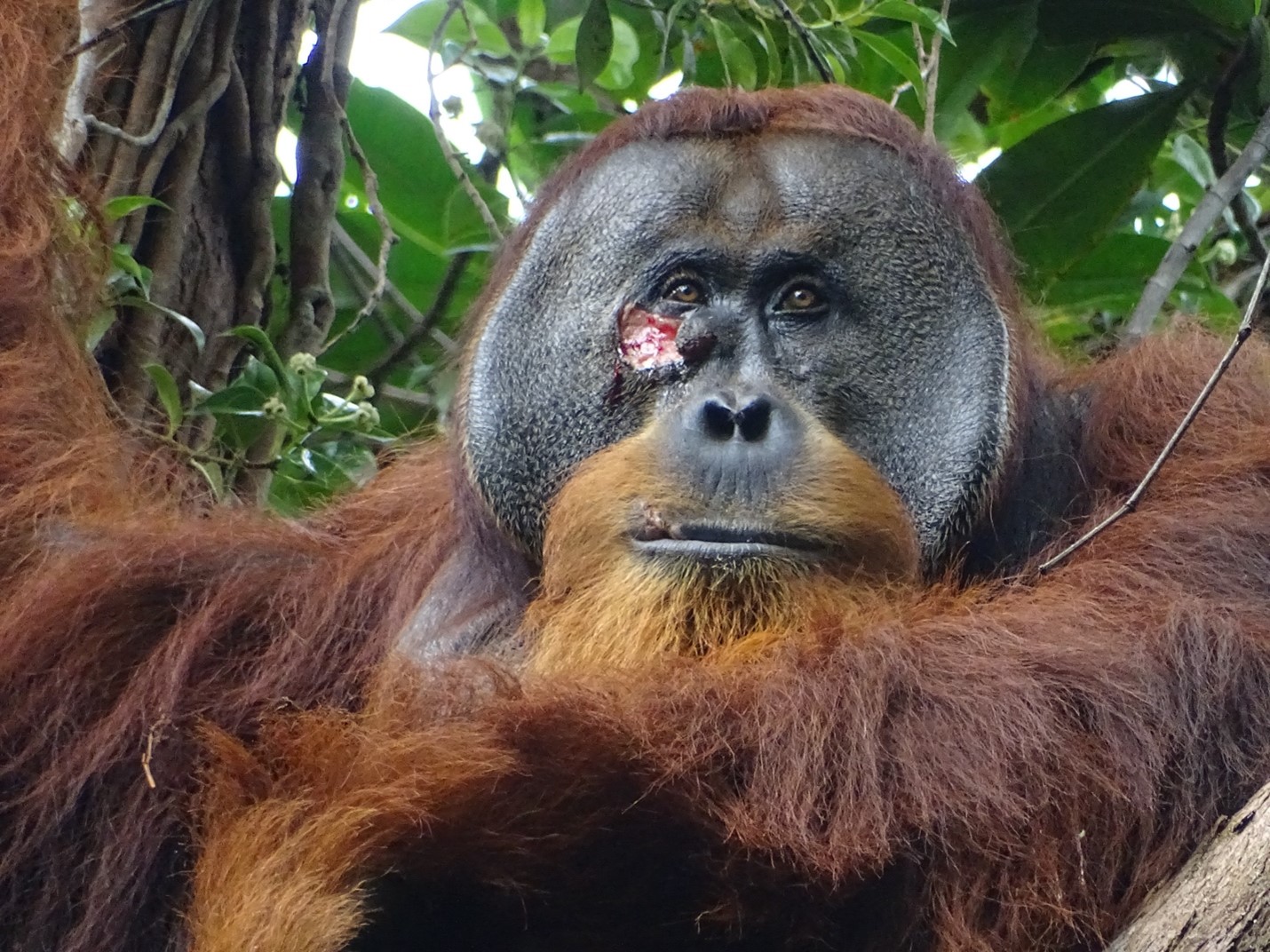News release
From:
First report of wound treatment by a wild animal using a medicinal plant
A wild male Sumatran orangutan (Pongo abelii) has been observed applying chewed leaves from Akar Kuning (Fibraurea tinctoria) — a climbing plant used in traditional medicine to treat wounds and conditions such as dysentery, diabetes, and malaria — to a wound on his cheek. The findings, which are published in Scientific Reports, represent the first report of suspected wound treatment by a wild animal using a plant with known medicinal properties.
Prior to this study, multiple wild primate species had been observed swallowing, chewing, or rubbing plants with medicinal properties but not applying them to recent wounds.
Isabelle Laumer and colleagues observed the male orangutan — given the name Rakus by researchers — in June 2022 in the Suaq Balimbing research area in Gunung Leuser National Park, Indonesia. Rakus chewed Akar Kuning stem and leaves and repeatedly applied the liquid this generated onto a wound on his right cheek for seven minutes, which he had sustained three days prior. Rakus then smeared the chewed leaves onto the wound until it was fully covered and continued feeding on the plant for over 30 minutes. The authors reported no signs of wound infection in the days following their observations. The wound had closed within five days and was fully healed within one month.
As Rakus repeatedly applied plant material to his wound but no other body parts and the entire process took over half an hour, it is likely that he intentionally treated his facial wound with Akar Kuning. Previous research has identified antibacterial, anti-inflammatory, anti-fungal, and antioxidant properties in Akar Kuning and the chewed leaves may have helped to reduce pain and inflammation caused by Rakus’s wound, and supported wound healing. The authors do not know whether this was the first time that Rakus treated one of his wounds or had previously learnt this behaviour from other orangutans from his birth area. As it appears that Rakus did intentionally treat his wound, this suggests that the behaviour could have arisen in a common ancestor shared by humans and great apes.
The authors note that they have not observed other orangutans within the research area treating their wounds, however this could be due to the researchers rarely encountering injured individuals.
Multimedia





 International
International



